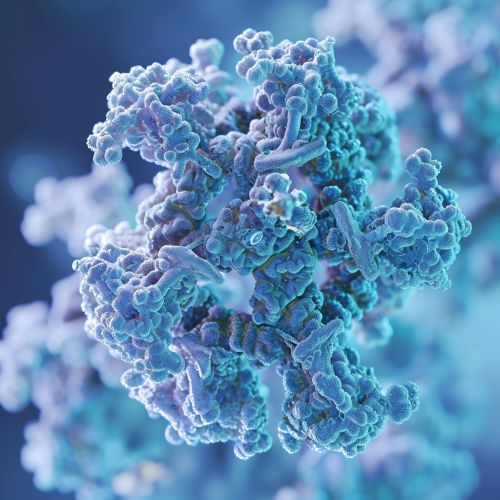Type I polyketide synthases
Introduction
Type I polyketide synthases (PKSs) are a family of multi-domain enzymes that play a crucial role in the biosynthesis of polyketides, a diverse class of secondary metabolites produced by bacteria, fungi, and plants. These metabolites have a wide range of biological activities, including antibiotic, antifungal, anticancer, and immunosuppressive properties.


Biosynthesis of Polyketides
The biosynthesis of polyketides by Type I PKSs is a complex process that involves the sequential condensation of simple carboxylic acid units, typically malonyl-CoA or methylmalonyl-CoA. This process is analogous to fatty acid synthesis, but with the key difference that the intermediate compounds in polyketide synthesis are often modified by additional enzymatic domains within the PKS complex.
Structure and Function of Type I PKSs
Type I PKSs are large, multi-domain enzymes that operate in an assembly-line fashion. Each PKS complex contains multiple copies of three core domains: the acyltransferase (AT) domain, the ketosynthase (KS) domain, and the acyl carrier protein (ACP) domain. These core domains work in concert to sequentially add, modify, and pass along the growing polyketide chain.
The AT domain is responsible for selecting and loading the appropriate carboxylic acid substrate onto the ACP domain. The KS domain then catalyzes the condensation of this substrate with the growing polyketide chain. The ACP domain serves as a flexible arm, carrying the growing polyketide chain from one active site to the next within the PKS complex.
In addition to these core domains, Type I PKSs often contain additional domains that modify the polyketide chain as it is being synthesized. These modifications can include ketoreduction, dehydration, and methylation, among others. The presence and order of these additional domains within the PKS complex dictate the structure and functionality of the final polyketide product.
Classification of Type I PKSs
Type I PKSs are further classified into two subtypes based on their organization and mode of operation: modular PKSs and iterative PKSs.
Modular PKSs, also known as assembly-line PKSs, contain a separate set of domains for each round of chain elongation and modification. Each module within the PKS complex is used only once during the synthesis of a single polyketide molecule. This type of PKS is commonly found in bacteria, particularly in the production of complex polyketides such as erythromycin and rifamycin.
Iterative PKSs, on the other hand, use the same set of domains multiple times in a cyclic manner to synthesize the polyketide chain. This type of PKS is typically found in fungi and plants, and is responsible for the production of simpler polyketides such as aflatoxin and lovastatin.
Biotechnological Applications of Type I PKSs
Due to their ability to produce a wide range of structurally diverse and biologically active compounds, Type I PKSs have garnered significant interest in the field of biotechnology. By manipulating the genes encoding these enzymes, researchers can engineer microbes to produce novel polyketides with desired properties. This approach, known as combinatorial biosynthesis, has the potential to greatly expand the repertoire of available drugs and other useful compounds.
